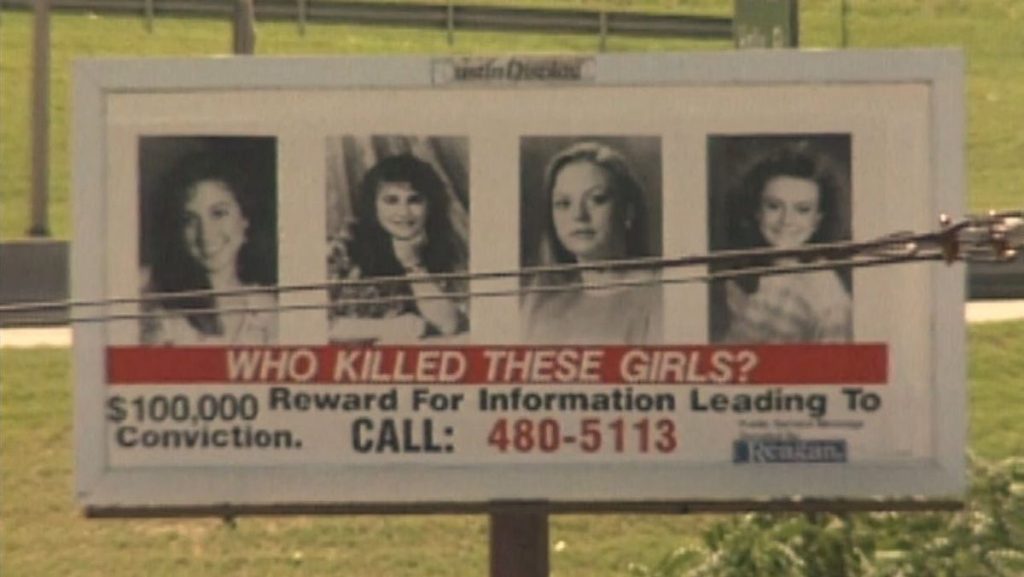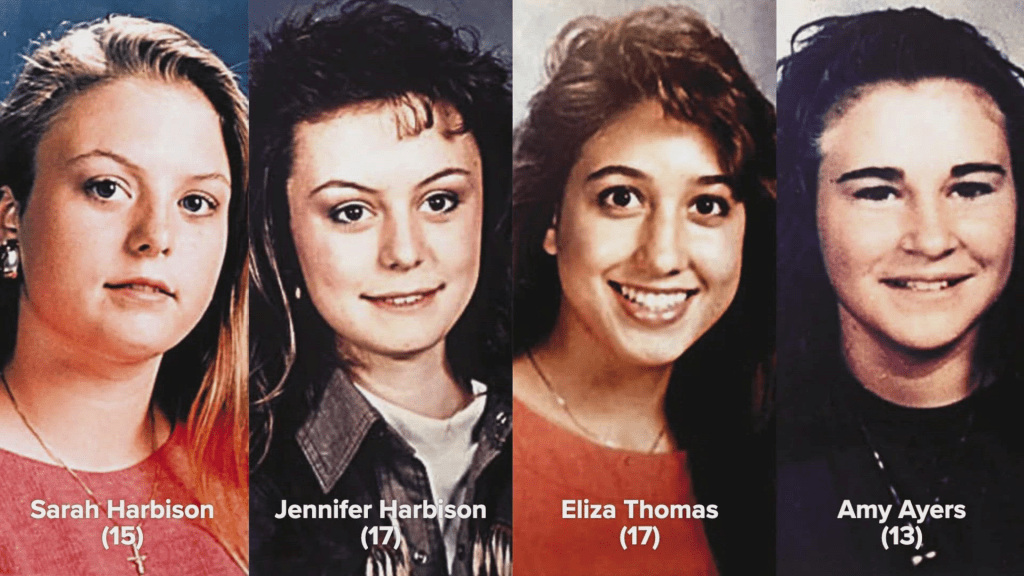A Night That Changed Austin Forever
Back in December 1991, a city half its current size was rocked to its core. Four teenage girls—Eliza Thomas, Amy Ayers, and sisters Jennifer and Sarah Harbison—were discovered murdered inside a frozen yogurt shop in North Austin. Their young lives were stolen, and the crime scene was so horrific that even decades later, its memory haunts the community.

The victims were found shot and burned inside the shop called I Can’t Believe It’s Yogurt!, and the tragedy quickly became one of the most infamous unsolved crimes in Texas history. To this day, the case remains open. No official convictions have stood. No final answers. And no peace for the families left behind.
A Docuseries That Reopens Old Wounds and Questions
More than three decades later, HBO’s new docuseries The Yogurt Shop Murders is bringing fresh attention to the cold case. Premiering August 3, the four-part series explores not just the night of the murders, but the lasting trauma on families, witnesses, and a city that still carries the scars.
Directed by Margaret Brown and produced by Oscar-winner Emma Stone and Dave McCary, the series dives deep into the rabbit holes, conspiracy theories, and false starts that have surrounded the case. It introduces viewers to voices who’ve stayed silent for decades—and facts that, until now, remained hidden in dusty case files.
Video : The Yogurt Shop Murders | Official Trailer | HBO
From Cold Case to Renewed Hope
Enter Detective Dan Jackson, a soft-spoken yet determined investigator who inherited the case in 2022 as part of the Austin Police Department’s cold case unit. Growing up just 30 miles from Austin, Jackson had heard the story all his life. Now it’s his mission.
He knows the uphill battle he’s facing: a fire-damaged crime scene, decades-old evidence, and the burden of shattered community trust. But he believes the pieces are there—they just need the right tools and timing to fit together.
“If I didn’t think I could solve it, then why get up every day?” Jackson says. And you can feel he means it.
DNA Doesn’t Lie—But It Hasn’t Told the Whole Truth Yet
Two men, Robert Springsteen and Michael Scott, were once convicted in connection to the case. Springsteen even received the death penalty. But those convictions were later overturned due to serious issues with how confessions were obtained—and most notably, a DNA sample at the crime scene matched neither man.

That one piece of unclaimed DNA has become the thread Jackson is pulling on. Thanks to advancements in forensic technology, what was once too small or degraded for analysis might now hold answers. He’s hopeful that new tools can finally identify the unknown individual behind it.
New Voices, New Leads, New Pressure
The series doesn’t just relive the horror—it tries to shake loose fresh insight. People are still talking. A stranger sent a message to the director claiming to have solved it. Social media continues to swirl with speculation. Jackson believes the docuseries might prompt someone to finally come forward.
“Somebody out there knows something,” he says. And maybe after all these years, guilt, maturity, or new perspective could be what pushes them to speak up.
Video : Detective Confident He Will Solve 34-Year-Old Yogurt Shop Murders Cold Case
Cold cases often hinge on this kind of tipping point. Time may silence some, but it also changes people—and just one new tip could be enough to blow the case wide open.
Why This Case Still Matters Today
The Yogurt Shop Murders aren’t just a ghost story told by locals or a trivia question for crime buffs. They represent something much deeper—a heartbreaking failure of justice, the consequences of a flawed investigation, and the resilience of families who refuse to stop fighting for answers.
It also reflects a broader truth about unsolved crimes. Even after decades, they don’t go away. They linger. They affect how a city sees itself, how survivors navigate their lives, and how the public defines trust in law enforcement.
A Final Push for Justice

Detective Jackson isn’t promising miracles. But he’s promising to try—every day, with every tool available. With better technology and increased public interest sparked by the HBO series, there’s real hope that this time, the story could finally end with accountability.
The pain of that December night in 1991 will never disappear. But closure, however delayed, still matters. And with someone like Jackson on the case—and a city that hasn’t forgotten—justice might finally catch up.
If you know anything about the case, even the smallest detail, now might be the moment to come forward. Because someone out there holds the key. And the families, the city, and those four young girls deserve to turn the last page on this haunting story.